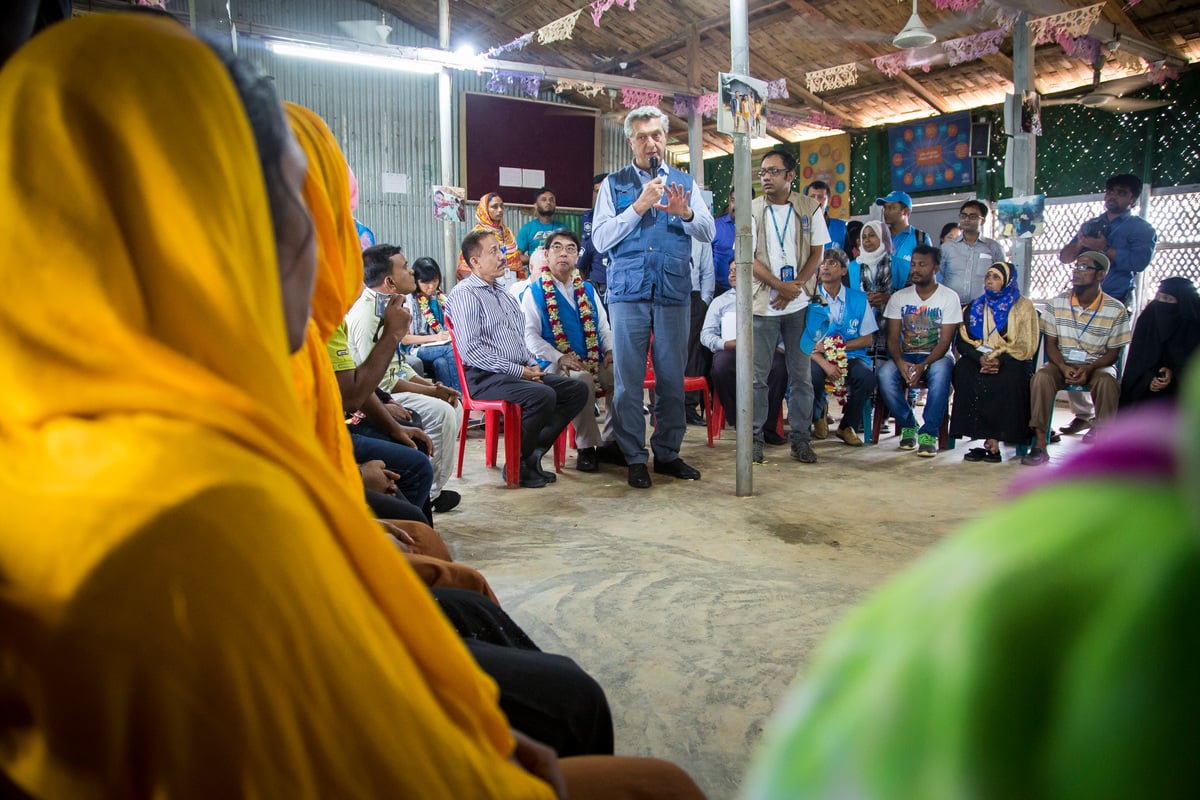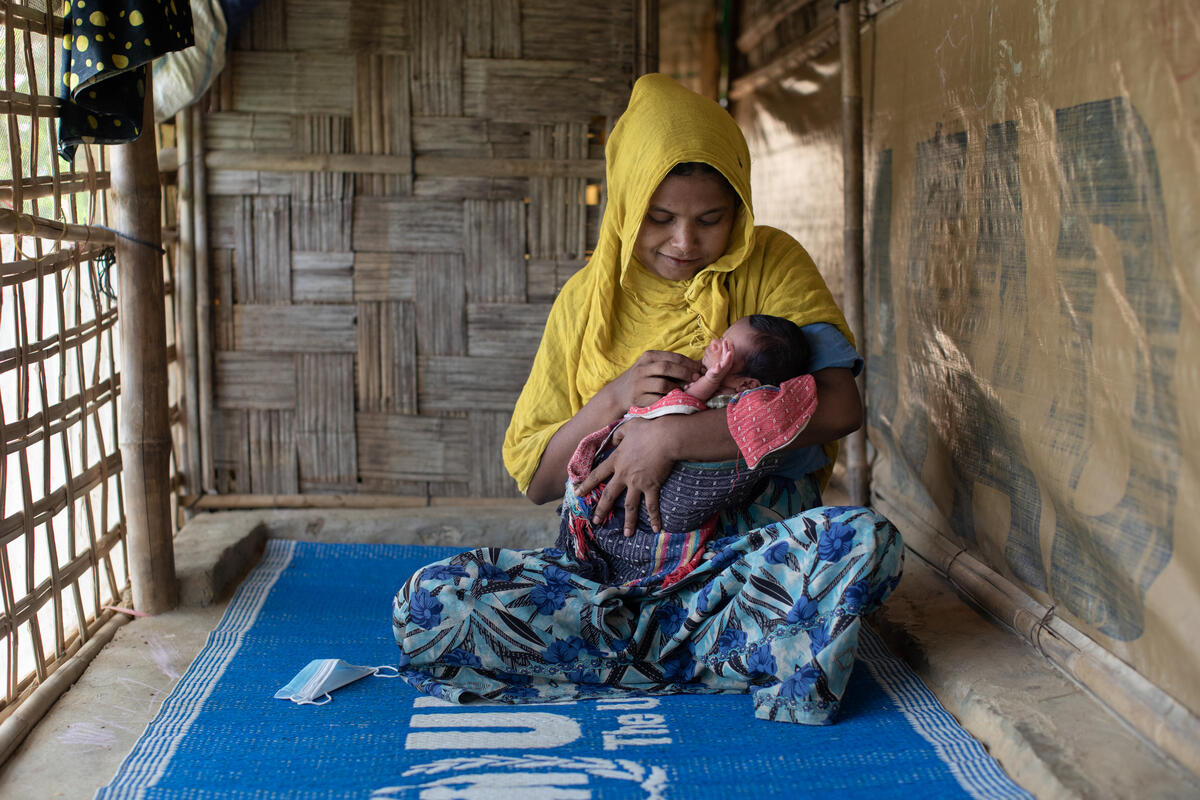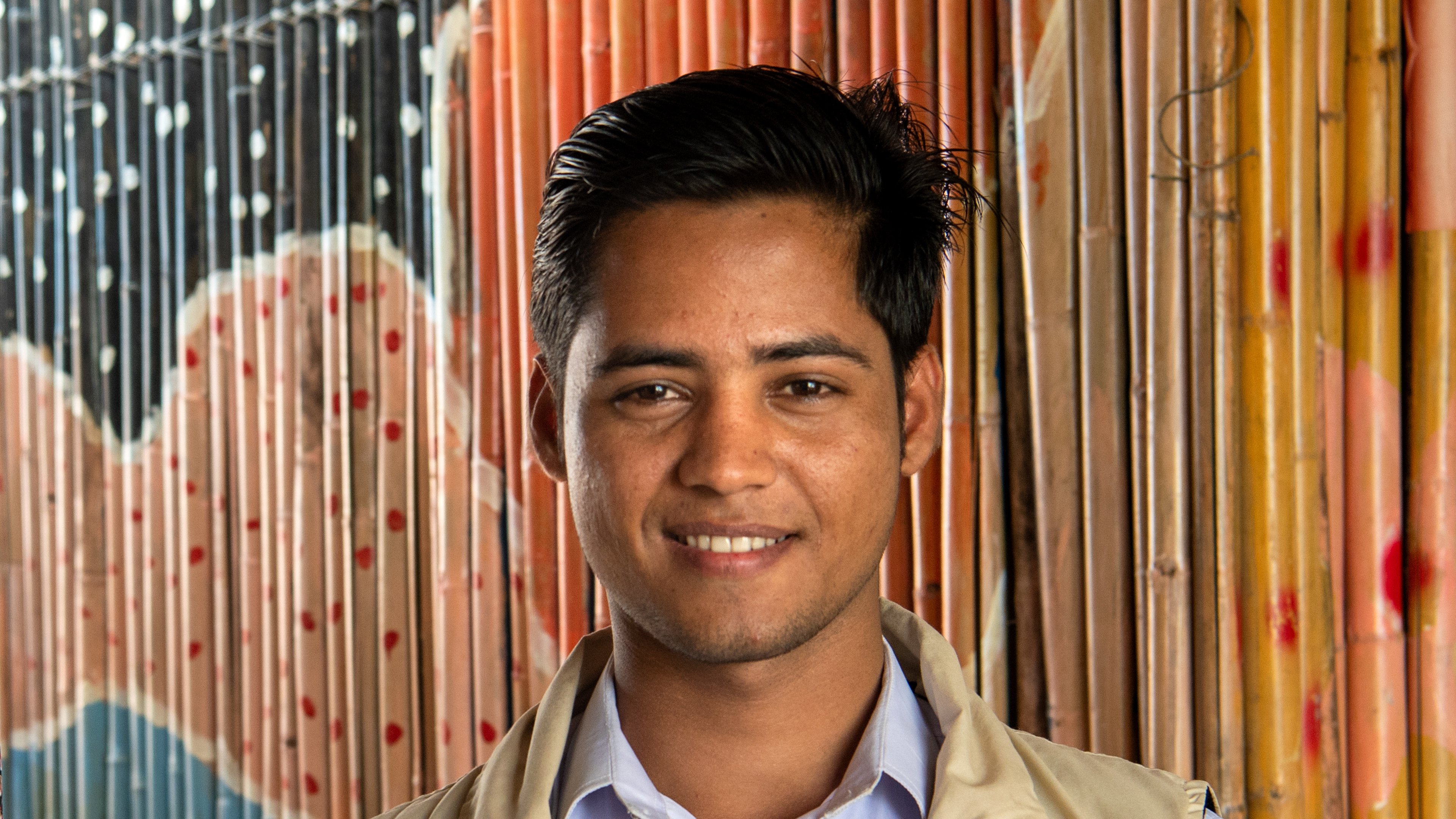Give the Rohingya hope for a future, urges UNHCR chief
Give the Rohingya hope for a future, urges UNHCR chief

COX’S BAZAR, Bangladesh – Encouraged by talks in Bangladesh and Myanmar, UN High Commissioner for Refugees Filippo Grandi today called for more opportunities for Myanmar refugees in Bangladesh, alongside action to improve conditions back home to support sustainable returns.
The High Commissioner wrapped up his visit to Bangladesh on Tuesday after meeting with Rohingya refugees in Cox’s Bazar.
In Kutupalong refugee camp, Rohingya refugees told him that after spending 26 years in exile, they had very little hope left.
“We need to be able to plan our future. No one can prosper if there are no opportunities,” said one refugee. “Our children need to receive accredited education that will allow them to enter institutions of higher learning. Opportunities must be made available for employment.”
The High Commissioner noted that during his meeting with Bangladeshi Prime Minister Sheikh Hasina, “she said she wished to improve the conditions of refugees in the country. We will work for that improvement – trying to give you more opportunities, especially in employment."
He also met a refugee who recently arrived after fleeing the violence in northern Rakhine state last October. Arefa, 25, escaped with her three daughters and fellow villagers after her house was razed and her husband arrested. She has not heard from him since.
Hosted by a refugee family in Kutupalong camp, the family receives food rations and the eldest girl, eight-year-old Rubina, is attending school nearby. Arefa is currently learning to make tooth-cleaning powder in a UNHCR-supported vocational training, but her immediate concern is finding her husband.
“First, she needs to know where her husband is. Her husband needs to be free from prison and she has to have a house to go back to, land on which to rebuild her house,” said Grandi. “These are all things that I have seen in Myanmar and all things that we are working on on the other side.”
The High Commissioner was in Myanmar last week, talking to displaced and stateless people in Rakhine state. In discussions with State Counsellor Aung San Suu Kyi, she pledged her commitment to pursue the citizenship verification exercise and to implement the interim recommendations of the Advisory Commission for Rakhine State, which call for greater freedom of movement and access to services for the Rohingya.
"Opportunities must be made available for employment.”
“My meetings with two strong women leaders – one in Myanmar, one in Bangladesh – make me hopeful that those solutions can be pursued,” said Grandi. “We should not underestimate the multiple challenges but it’s clear that the future of Rakhine state is one of peaceful co-existence between communities.”
Thanking Bangladesh for hosting waves of refugees from Myanmar over several decades, Grandi offered UNHCR’s expertise in biometric registration to help document the Rohingya refugees living in and outside camps.
“This can help to improve assistance and protection no matter where they are, and also help with planning for any eventual voluntary return,” said the UNHCR chief.
Some 350,000 Rohingya have fled Myanmar in search of protection in Bangladesh, including an estimated 74,000 who arrived in late 2016 as a result of a security crackdown in northern Rakhine state.









